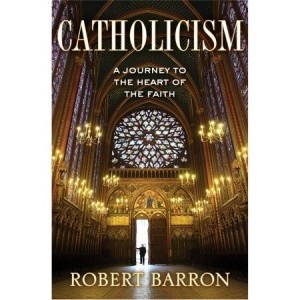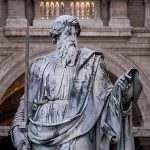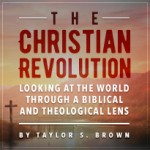
I’ve been on a bit of a Catholic reading and listening kick lately. I think of it as my way of engaging in ecumenical dialogue. One of these books has been Bishop Robert Barron’s Catholicism: A Journey to the Heart of the Faith (Image: 2011). The book is intended to be both an introduction to Roman Catholic Christianity (though so far it has served as a good intro to little “c” catholic Christianity) and a companion to Bishop Barron’s Catholicism TV series. Part of this introduction includes understanding what we mean when we talk about God. While I am much more amenable to Aquinas’s understanding of God as the Subsistent Act of Being (as is Barron himself), Bishop Barron provides a very nuanced way of understanding Anselm’s ontological conception of God. In fact, Anselm’s definition is probably more logically coherent than many modern attempts to reformulate it:
Saint Anselm of Canterbury, one of the greatest of the early medieval theologians, described God as “that than which nothing greater can be thought.” At first blush this seems straightforward enough: God is the highest conceivable thing. But the longer one meditates on Anselm’s description, the stranger it becomes. If God were simply the supreme being—the biggest reality among many—then God plus the world would be greater than God alone. But in that case he would not be that than which nothing greater can be thought. Zeus, for example, was, in ancient mythology, the supreme deity, but clearly Zeus plus the other gods, or Zeus plus the world of nature, would be greater than Zeus alone. Thus the God whom Anselm is describing is not like this at all. Though it is a very high paradox, the God whom Anselm describes added to the world as we know it is not greater than God alone.
This means that the true God exceeds all of our concepts, all of our language, all of our loftiest ideas. God (YHWH) is essentially mysterious, a term, by the way, derived from the Greek muein (to shut one’s mouth). How often the prophets and mystics of the Old Testament rail against idolatry, which is nothing other than reducing the true God to some creaturely object that we can know and hence try to control. The twentieth-century theologian Karl Rahner commented that “God” is the last sound we should make before falling silent, and Saint Augustine, long ago, said, “si comprehendis, non est Deus” (if you understand, that isn’t God). All of this formal theologizing is but commentary on that elusive and confounding voice from the burning bush: “I am who am.” (Kindle Locations 888-900).












